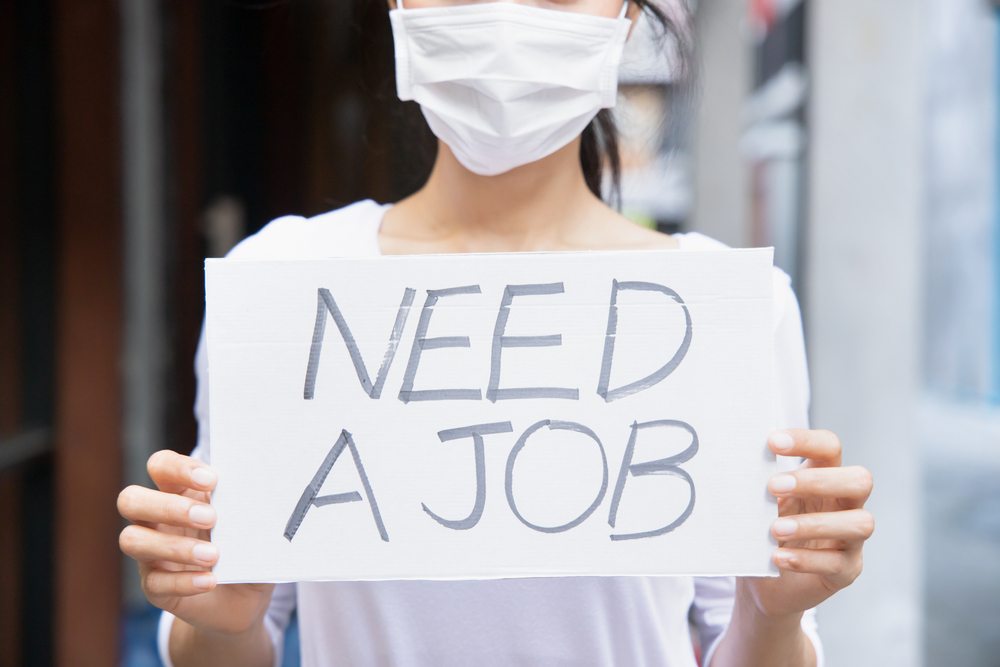Some states are reinstituting work search requirements for those applying for unemployment benefits, even as COVID-19 numbers remain high and the federal government has cut its assistance.
The issue is not so much the work search, which most states required before the virus, it is the possibility of being offered a job during a pandemic, said Michigan employment lawyer Tim Seeger.

“A lot of people are still concerned about their safety and don’t have pandemic relief anymore,” Seeger said. “If I apply for a job and it is offered to me, I am somewhat under an obligation to accept it. I may not feel comfortable doing that. If I turn it down, I may not continue to receive benefits.”
RELATED: Uber, Lyft drivers earn win in battle for unemployment benefits
RELATED: Divorce spiking during pandemic
Not long ago, employers were complaining that when they offered people their job back, they refused because they were making more money with federal COVID-19 aid and not exposing themselves to the coronavirus, which has claimed more than 170,000 lives in the U.S. That $600 per week dried up July 31.
These work search requirements apply to contract workers as well as people out of work who normally receive a W-2 tax form from the Internal Revenue Service.
Louisiana and Mississippi became the latest to reinstitute work search requirements, while Arkansas, Nebraska and Missouri resumed enforcing their requirements in June and July. Colorado resumed work search requirements in May.
In Michigan, where Seeger is based, the unemployment rate is still very high, at 14.8% as of July, according to the Bureau of Labor Statistics.
“I have not heard of any plan to reinstate the work search requirement here,” Seeger said. “Michigan has been hit pretty hard.”
In Florida, Gov. Ron DeSantis has extended the waiver of that requirement four times, as coronavirus numbers in that state continue to rise. Florida’s unemployment rate as of July was 10.4%. Georgia and Texas, both of which had planned to reinstitute the work search requirement in early summer, continue to allow a waiver due to COVID-19.
Trump initiative replaces $600 assistance
After the $600 weekly checks for federal unemployment assistance expired, President Donald Trump signed an executive order to begin the Lost Wages Assistance program, providing claimants in most unemployment insurance programs with up to $400 per week, which includes an optional $100 per week from states who can afford it.
States will administer the program through a grant agreement with the Federal Emergency Management Agency with support from the U.S. Department of Labor. The$44 billion in funding for it is coming from FEMA’s budget, normally used in times of natural disasters such as hurricanes and wildfires.
Only seven states have applied for the new funds thus far, according to the labor department. To qualify for those benefits, individuals must certify they are “unemployed or partially unemployed due to disruptions caused by the novel coronavirus and the state must confirm that the individual is receiving at least $100 of underlying unemployment benefits.”
As long as people in states where work search is required report that they are looking, their benefits will be fine, Seeger said. When they get that job offer, though, they will have to make a decision, based on their own concerns over COVID-19.
The work-search temporary waiver in Mississippi ended Aug. 8. Those seeking unemployment benefits will again be required to fill out a form for each benefit period naming three places per week they sought employment. One of those three job contacts must include filing for unemployment, according to the Mississippi Department of Employment Security.
The unemployment rate in Mississippi, as of July, was 9.7%, according to the Bureau of Labor Statistics.

“The employment situation is not good,” said Jackson, MS employment lawyer Joel Dillard. “It seems to me pretty clear that our bureaucracy is unable to handle the caseload.”
Adding back the work search requirement means bureaucrats have even more to investigate in determining if someone is eligible for benefits, he said.
“The wait times are already long” to receive benefits, Dillard said. “They are absolutely overwhelmed.”
So are the judges, who in considering appeals for unemployment claims, are making random decisions, rather than deciding based on facts, he said.
“When expectations are bigger than the resources allocated, they find creative ways to make it appear the expectations are being met, like turning people down without due diligence,” Dillard said. “For example, one of the things you have to determine is if someone was fired or resigned. If resigned, did they have a choice in the matter? That second part of that inquiry is a little more challenging. It requires talking to people and investigating. Or, you can just look at a resignation letter and stop because you don’t have time to take the next step.”
On the Louisiana unemployment website, where employers seeking workers can list available jobs and employers are encouraged to report people who refuse to return to work, those seeking benefits must report where they have applied for work. That requirement resumed last week, though the Louisiana Workforce Commission website does not yet reflect the end of the waiver.
Louisiana’s unemployment rate as of July was also 9.7%, according to the BLS.
Louisiana Gov. John Bel Edwards said he decided to end the waiver because the state is running out of its unemployment funds, which would trigger an automatic tax increase on businesses if Congress does not replenish it.
“The state benefit is (up to) $247 each week, and people are not going to be able to survive on that,” Edwards said Aug. 6. “It is time to get those who can back into a job and find work, and there are several thousand jobs available in Louisiana.”














